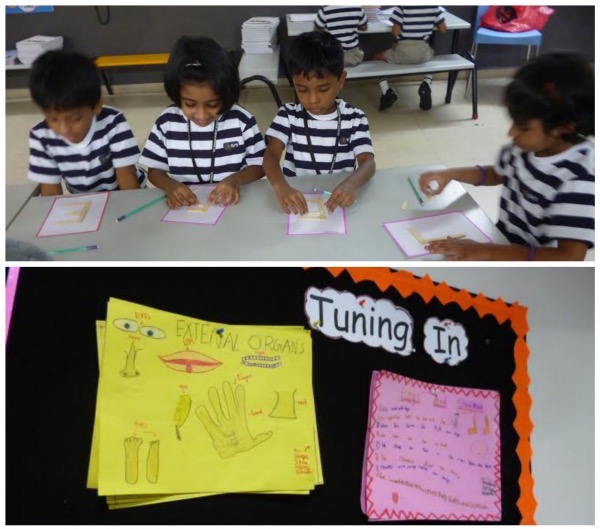At TIPS we believe that all students learn differently, so the learning experiences in primary years are also designed to constantly be engaged and challenged.
In Grades 1&2 we continue to build on the inquiry and play students experienced in the early years. The pace is a bit quicker, but the celebration of learning and exploration is present throughout. Here you will find the joy of exploration and inquiry. The buzz throughout the hallways, represents students learning and engagements. Throughout primary we all strive to create opportunities for children to wonder and explore. We partner with parents and community members to provide a program that supports student growth socially, emotionally, physically, and academically.
The aim of PYP, to create a curriculum that is engaging, relevant, significant and challenging, is achieved through structured inquiry and the development of five essential elements: knowledge, concepts, skills, attitudes and action.
Concepts: powerful ideas which have relevance within and across the disciplines and which students must explore and re-explore in order to develop understanding.
Knowledge: significant, relevant subject matter we wish students to explore and know about.
Skills: those things the students need to be able to do to succeed in a changing, challenging world.
Attitudes: dispositions which are expressions of fundamental values, beliefs and feelings about learning, the environment, and people.
Action: demonstrations of deeper learning in responsible behavior through positive action and service, a manifestation in practice of the other essential elements.
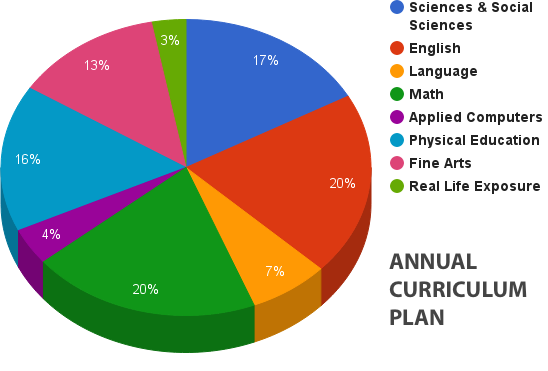
The six transdisciplinary themes are:
1. Who we are
2. How we express ourselves
3. Where we are in place and time
4. How the world works
5. How we organize ourselves
6. Sharing the Planet
The curriculum helps students develop lasting understanding by exposing them to the key concepts. These concepts are a ‘key’ to unlocking the student understanding of the body of knowledge represented in each subject area.
- Form: What is it like?
- Function: How does it work?
- Causation : Why is it like it is?
- Change: How is it changing?
- Connection: How is it connected to other things?
- Perspective: What are the points of view?
- Reflection: How do we know?
- Responsibility: What is our responsibility?
Science and social sciences
In the Primary Years Programme (PYP), sciences are viewed as the exploration of the biological, chemical and physical aspects of the natural world, and the relationships between them. Our understanding of science is constantly changing and evolving. The inclusion of science within the PYP leads learners to an appreciation and awareness of the world as it is viewed from a scientific perspective. It encourages curiosity and ingenuity and enables the student to develop an understanding of the world. Reflection on scientific knowledge also helps students to develop a sense of responsibility regarding the impact of their actions on themselves, others and their world.
The knowledge component of science in the PYP is arranged into four strands: living things, Earth and space, materials and matter, and forces and energy.
Living things: The study of the characteristics, systems and behaviors of humans and other animals, and of plants; the interactions and relationships between and among them, and with their environment.
Earth and space: The study of planet Earth and its position in the universe, particularly its relationship with the sun; the natural phenomena and systems that shape the planet and the distinctive features that identify it; the infinite and finite resources of the planet.
Materials and matter: The study of the properties, behaviors and uses of materials, both natural and human-made; the origins of human-made materials and how they are manipulated to suit a purpose.
Forces and energy: The study of energy, its origins, storage and transfer, and the work it can do; the study of forces; the application of scientific understanding through inventions and machines.
The social studies component of the PYP is characterized by concepts and skills rather than by content. We ensure that a breadth and balance of social studies content is covered through the units of inquiry. The knowledge component of social studies in the PYP is arranged into five strands:
Human systems and economic activities: The study of how and why people construct organizations and systems; the ways in which people connect locally and globally; the distribution of power and authority.
Social organization and culture: The study of people, communities, cultures and societies; the ways in which individuals, groups and societies interact with each other.
Continuity and change through time: The study of the relationships between people and events through time; the past, its influences on the present and its implications for the future; people who have shaped the future through their actions.
Human and natural environments: The study of the distinctive features that give a place its identity; how people adapt to and alter their environment; how people experience and represent place; the impact of natural disasters on people and the built environment.
Resources and the environment: The interaction between people and the environment; the study of how humans allocate and manage resources; the positive and negative effects of this management; the impact of scientific and technological developments on the environment
These strands are concept-driven and are inextricably linked to each other. They also provide links to other subject areas of the PYP curriculum model.
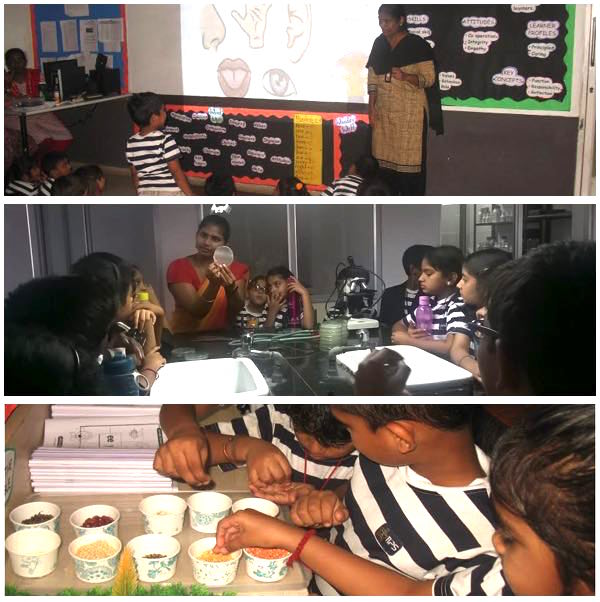
In the IB Primary Years Programme, mathematics is viewed as a global language through which the students make sense of the world around them, use it as a way of critical thinking as opposed to a series of facts and equations.
The Math in Focus program caters to the individual needs by providing differentiation at all levels. It has been designed in recognition that learning mathematics is a developmental process and that the phases a learner passes through are not always linear or age related.
Mathematics is also viewed as a vehicle to support inquiry, providing a global language through which we make sense of the world around us. It is intended that students become competent users of the language of mathematics, and can begin to use it as a way of thinking, as opposed to seeing it as a series of facts and equations to be memorized.
For this reason the content is presented in continuums for each of the five strands of mathematics to built their conceptual understanding of the mathematics in life.
The learners acquire mathematical skills through five important strands:
- Numbers,
- Data Handling,
- Patterns and Functions,
- Measurement and
- Shapes & Space
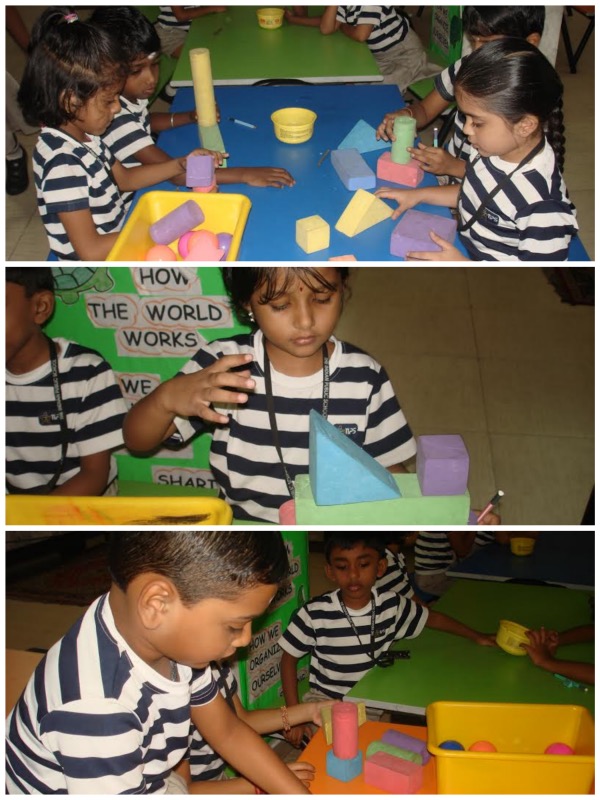
Through our ICT program we try to equip students with necessary computing skills that they might require in their day to day lives. Our curriculum mainly focuses on providing students with knowledge of the most commonly used software and editing tools. The progression of work gradually increases with each grade level. Once the students are thorough with the usage of tools, they are given activity templates which they need to finish using all the formatting and editing tools they have mastered. The ICT skills are used to
- Create report using word processing
- Research facts on internet
- Conduct survey
- Create, organize and infer date in excel-spreadsheets,
- Produce animated story and presentation,
- Edit photo and other elements for presentations and other activities
It is worthwhile to note that there will be opportunities for student-initiated, spontaneous inquiries into the use of ICT that are not directly related to any planned units of inquiry or single-subject areas. For example, a student contributing to a class blog may want to start his or her own blog as a personal reflection journal. These are valuable teaching and learning opportunities in themselves, and provide teachers and students with the opportunity to apply the pedagogy of the PYP to authentic, of-the-moment situations.
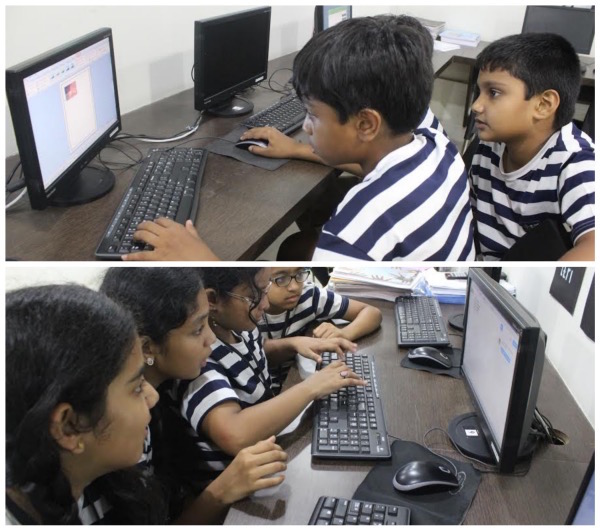
Physical Education / Sports
P.E. involves human movement in relation to the physical environment. It is concerned with learning about physical activity and through physical activity P.E offers students the opportunity to discover the capabilities of their body and a variety of ways in which they are able to use their bodies to solve problems, address physical challenges, function as a part of a group, manipulate equipment and express themselves in a range of situations.
Through movement students develop socially, personally, emotionally as well as physically. They learn to understand and accept their own strengths and weakness in Physical fitness sessions. All this is achieved through a well structure curriculum which involves mastery of sports like
- Basketball,
- Swimming,
- Cricket
- Soccer
- Badminton
- Track and Field and other activities
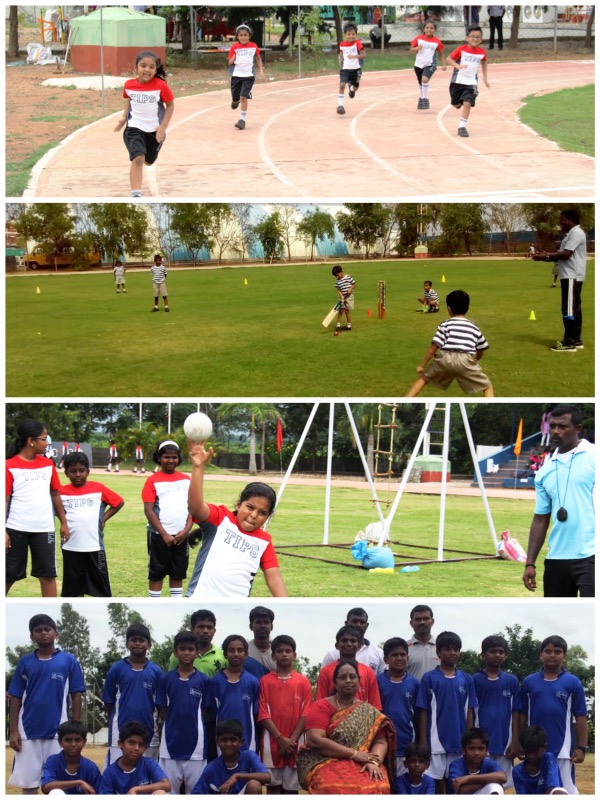
Fine Arts
Arts are viewed as a form of expression that is inherent in all cultures. They are powerful means to assist in development of proficiency as musicians, actors and visual artists, acquire listening and viewing skills and exhibit their creativity. This is achieved through
Drama
Through the Readers Theatre program students develop their creative skills, verbal and non-verbal expression an awareness of the perspective of others and aesthetic appreciation. Drama enables students to communicate in powerful ways to go beyond their spoken language ability.
Music
Music includes the study and exploration of sound and expressive use of musical elements. Students join together in musical activities using their voice and simple musical instruments to develop concepts about sound. Students learn different genres of music to give them a complete awareness of music applied in different cultures, places and time.
Dance
Through the dance program students learn to move their bodies in rhythm, usually in time to music. Students learn to express themselves in a non-verbal manner. Students get a platform to narrate a story, set a mood or express emotions. Dance from a wide range of genres are covered. Dance is used as a source of recreation, fun, relaxation and it provide a good excuse to exercise.
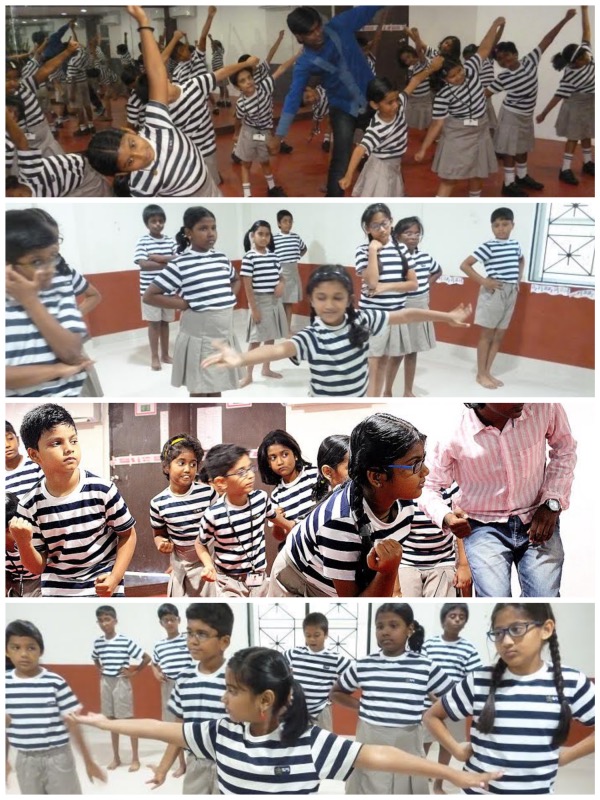
Yoga and meditation is a way of life and part of the curriculum to increase concentration and control. Yoga is practiced to increase our inner strength and develop our mind to function without stress at all levels. Stretching helps to become flexible and activates our brain cells to cope better and fast. In today’s increasingly distractive world, yoga and stretching helps to regain focus.
Our trained staff helps students learn Yoga to increase their mental and physical capabilities and be competent to function in this world. Yoga primary schooling encourages self-esteem and body awareness with a physical activity that’s noncompetitive. Fostering cooperation and compassion—instead of opposition—is a great gift to give our children.
Children derive enormous benefits from Yoga. Physically, it enhances their flexibility, strength, coordination, and body awareness. In addition, their concentration and sense of calmness and relaxation improves. Doing yoga, children exercise, play, connect more deeply with the inner self, and develop an intimate relationship with the natural world that surrounds them.

A Field trip is a visit to a place outside the regular classroom which is designed to achieve certain objectives, which cannot be achieved as well by using other, means Facilitate the learning of abstract concepts. Taking students on a field trip makes learning more effective as they will be able to gain vast ideas on the topic. Motivate students through increased interest and curiosity. Field trips can add variety to the regular classroom instructional program and they tend to be special and enjoyable learning experiences. Develops social awareness. Field trips make students aware of learning activities in everyday life. It enhances the curriculum. Give students experiential learning experiences.
Film, Movie and Video
Movies and videos can play a valuable role in the education process and can be an important aspect of a teacher’s strategy in providing lesson material to students. They do a great job of reinforcing a point that teachers are trying to make in class. Through Visual representation information is processed better. Videos shown on concepts being deal in class help to strengthen and reinforce teaching taking place in the classroom. Students are shown videos after which the students are asked to summarize their learning in form of a brief review, a class discussion or any other form of presentation.
Debate
Debates are a great tool for engaging students and livening up classroom curriculum. Using debates in the classroom can help students grasp essential critical thinking and presentation skills. Among the skills classroom debates can foster are abstract thinking, clarity, organization, persuasion, public speaking, research, and teamwork and cooperation. Debate gives students an opportunity to present their views and also helps them learn to become tolerant to views that might oppose theirs. It is a great strategy to promote peer learning.
Model United Nation
Students take part in the Model United nation as a delegate and debate with other nations’ representatives about the various significant national and international issues. This prepares them to be unbiased and well informed leader of tomorrow and understand the global issues and their implications today!
Student Exchange Programs
Our Grade 4 and Grade 5 students are invited to be a part of other international learning communities to experience the world outside. They become a part of the other school programs and share learning practices and their views on the world. Every year students also invite other international school communities to be a part of their learning community and let them connect with their world. Mostly these exchange programs are organized on the request of the other international school students in India for the primary years.
STEM
STEM is an acronym for Science, Technology, Engineering and Math education. We focus on these areas together not only because the skills and knowledge in each discipline are essential for student success, but also because these fields are deeply intertwined in the real world and in how students learn most effectively. STEM is an interdisciplinary and applied approach that is coupled with hands-on, problem-based learning. Some of the fields, our young scientists engage in are:
- Structures
- Sweepers
- Freewheeling
- Power cars
- Land Yacht
- Fishing rod
- Hammer
- Gears etc..
Cycling Expeditions
Students and teachers take part in the yearly cycling expeditions and challenge themselves. It is one of the mega events where all, students and faculties, enjoy the challenge and excel themselves.
All our trips have support crew and backup vehicle so you can cycle at your own pace, while there are no yellow jersey awards at the end of the day. The cycling is through undulating country on sealed and unsealed roads for between 10 and 35km a day at a steady pace and is fully supported by a back up vehicle. This is the perfect means to explore remote villages a world away from the highways
SPARK
The SPARK lab activity guides provide students with hands-on and minds-on learning experiences, making it possible for them to master both the scientific inquiry process and the tools that prepare them to conduct extended scientific investigations. Students learn to conceptualize basic scientific phenomenon and use science in their day to day life and develop critical things and scientific curiosity.
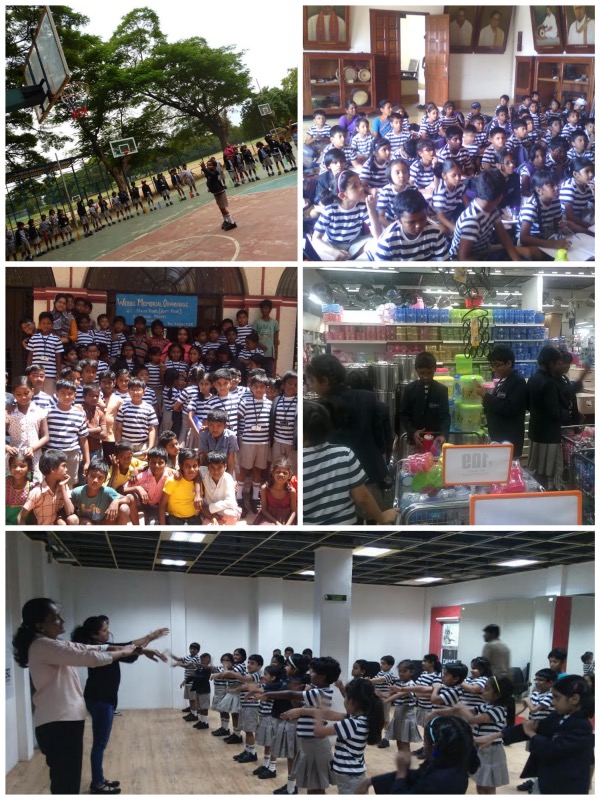
Some of the experiments they conduct are:
- Hunting with light
- Freezing and melting
- Water stations
- Greenhouse effects
- Whether station
- Conductors or not
- Plant life
- Feeling and measuring temperature


